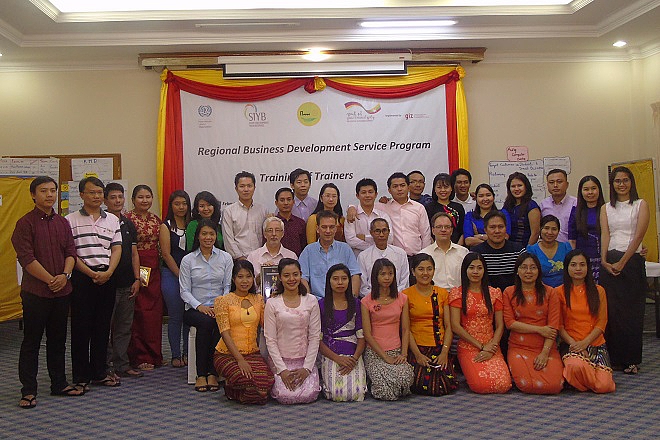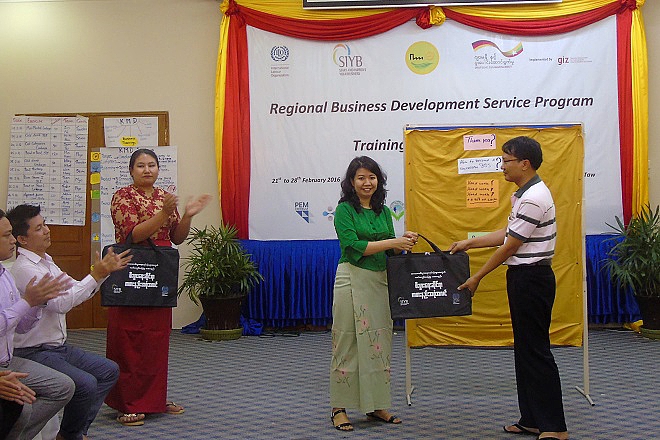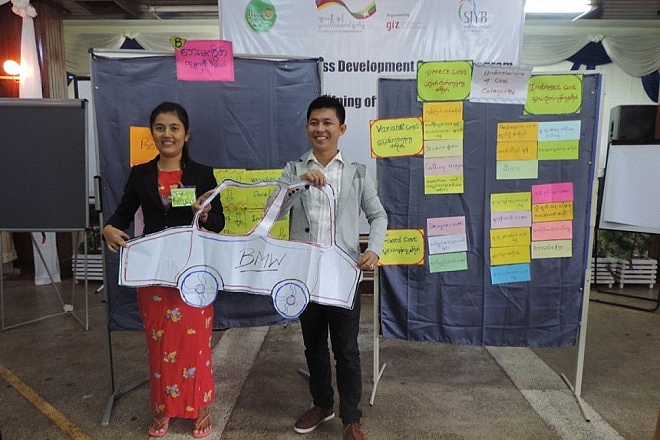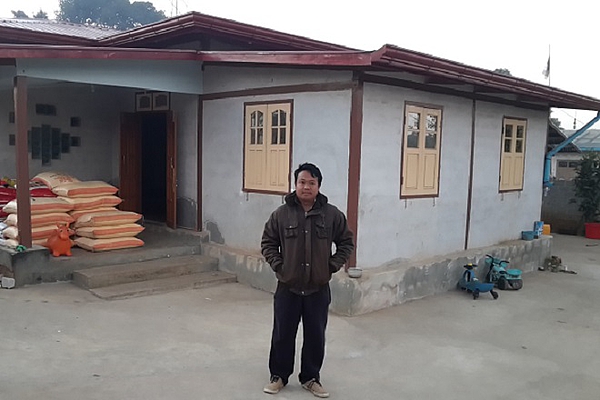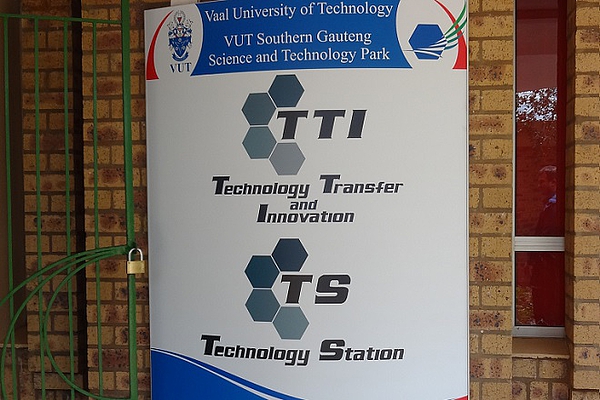NEWS
The focus on application - Starting a regional BDS Program in Myanmar
“I started teaching and training high school kids and later on IT-teachers already when I was still studying IT on university. After finishing my studies I decided to try to do something for young people by offering them training to develop/improve their competencies. This resulted finally in the opening of Soft Guide Magway Ltd in 2006 where I offer mainly IT and LCCI training to approximately 300 students per year. A few years ago I realised that just improving the competencies of young people was not enough as there are simply not enough jobs available. So, I had the idea to see if it would be possible to develop Business Management training in Magway for existing small enterprises hoping that through this kind of training they would be able to improve the management of their businesses and thus create jobs for the young people. In order to prepare myself for that, I started following a MBA course. By the time that I was almost finished with my MBA I was wondering how to ‘’teach’’ all I had learned in a practical way to small entrepreneurs. I realised that most of what I had learned was very academic and not very useful for small entrepreneurs. During that period I saw the advertisement from GIZ/ILO regarding the Regional BDS Program and I decided to participate. And in this program I found exactly what I was looking for:
how to apply the academic tools and concepts in a practical way.”
Daw Htay Yin Win, owner of Soft Guide Ltd in Magway, BDS-provider participating in the Regional BDS Program.
Setting
The development and capacity-building of Regional BDS-providers is one major activity of the entrepreneurship program (executed by the Consortium PEM CONSULT-Mesopartner-BuSoDev) that is part of the GIZ programme “Capacity Strengthening for Private Sector Development in Myanmar”. This is done in close collaboration with the SME Support Project from the ILO Liaison Office in Myanmar and with the national governmental Department for SME Development (SMEDC).
Both GIZ and ILO are running SME support-programs in Myanmar and introducing similar and complementary approaches, GIZ applying CEFE-based tools and ILO the SIYB methods. Combining forces and efforts to avoid unnecessary competition has led to the strategic decision on working together on this regional BDS program. Moreover the combination of the two methodologies, CEFE and SIYB, is beneficial for both trainers and entrepreneurs.
The advantages of upgrading existing local businesses as potential BDS-providers were quite obvious:
- They are entrepreneurs running their own schools and/or (social) enterprises.
- They are installed in the region and are thus also available for affordable training and follow-up.
- There is hardly any offer regarding business management trainings and/or entrepreneurship trainings in the regions so the market is still open.
- This kind of local training schools and (social) enterprises have already a basic infrastructure and a (small) staff of trainers.
- Last but not least, these businesses are installed and rooted in their home region and have there their own network already and are planning to be there also in the long term.
Results so far
After a selection process of finally 11 BDS-providers following the call for interest in Myanmar media and an appreciation workshop, a first Train-of-Trainer Session was conducted in October 2015. In the following three months every BDS-providers had to realize a minimum of two 3-days-trainings on basic principles of entrepreneurship and business. These pilot trainings and especially their preparation was conducted by own staff and coached by experienced Myanmar CEFE and SYIB trainers to practice the action learning methodologies. Some of the BDS providers organised more than the required two trainings. Overall the 11 BDS providers carried out in this pilot phase already 29 trainings with 560 participants. Almost 50 % of the participants came from existing SMEs (65 % SME owners and 35 % employees) while the other half consisted mainly of young students. It is important to note that for all the trainings commercial fees were paid by all participants, the entrepreneurs as well as the students. Just one training delivered by a social enterprise in a remote region was free of charge. The total income realised by the 11 BDS amounted to over 18.000.000 Kyats (app. 14.000 Euro, the course fee ranged between 15 and 40 Euro per person).
Among the best and most engaged BDS-providers was Daw Htay Yin Win and her company Soft Guide from Magwe. She not only realised in the 3-month period the two trainings supported by the coaching program but conducted another three trainings on her own initiative reaching in total 91 people of whom 80 % were local small entrepreneurs and a total income of almost 2.700.000 Kyats. This immediate outreach as well as the overall commitment and performance of all 11 BDS providers are very promising signs for success especially in the context of starting a brand new program.


